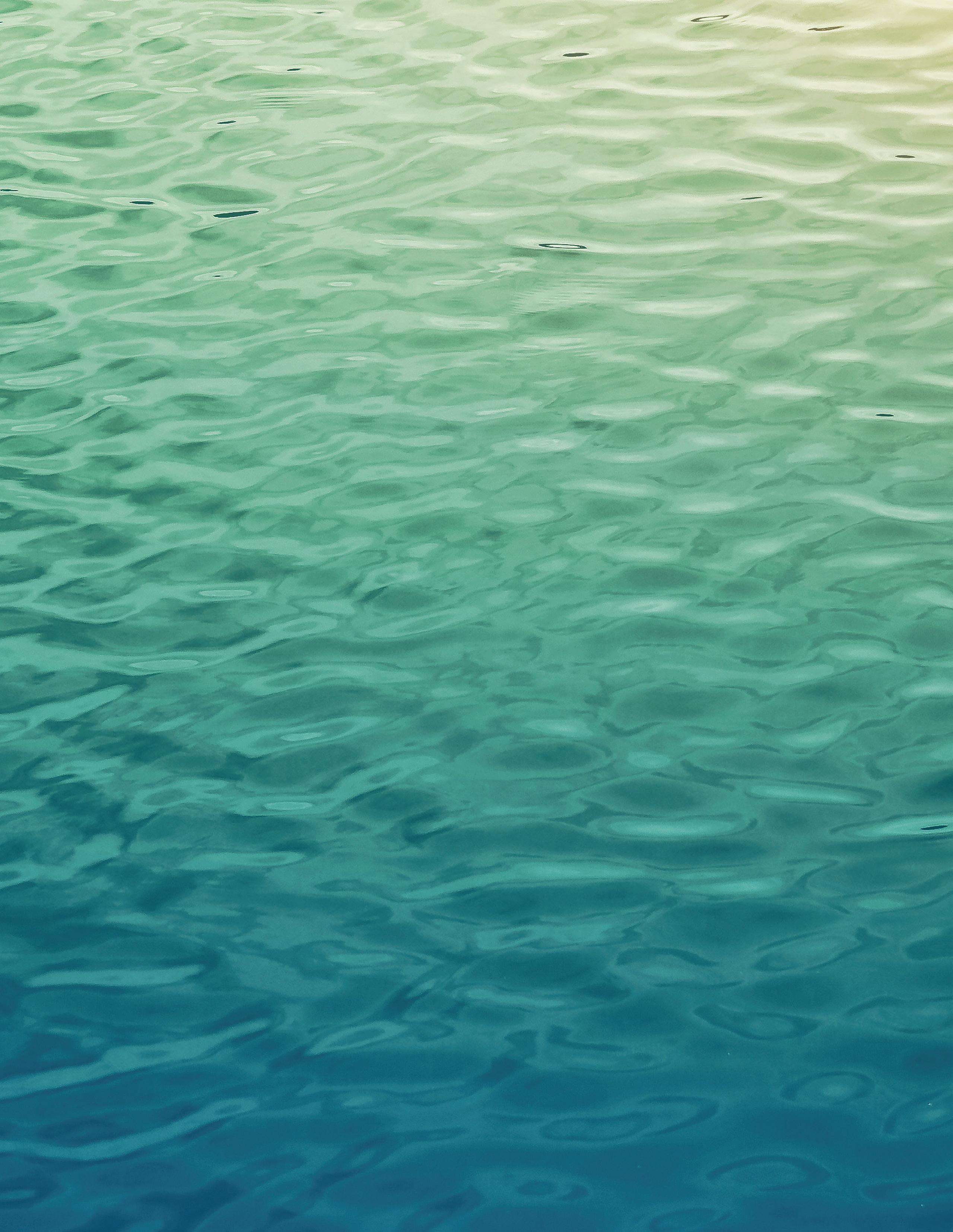
















FGCU CHANGING THE TIDE OF FLORIDA’S

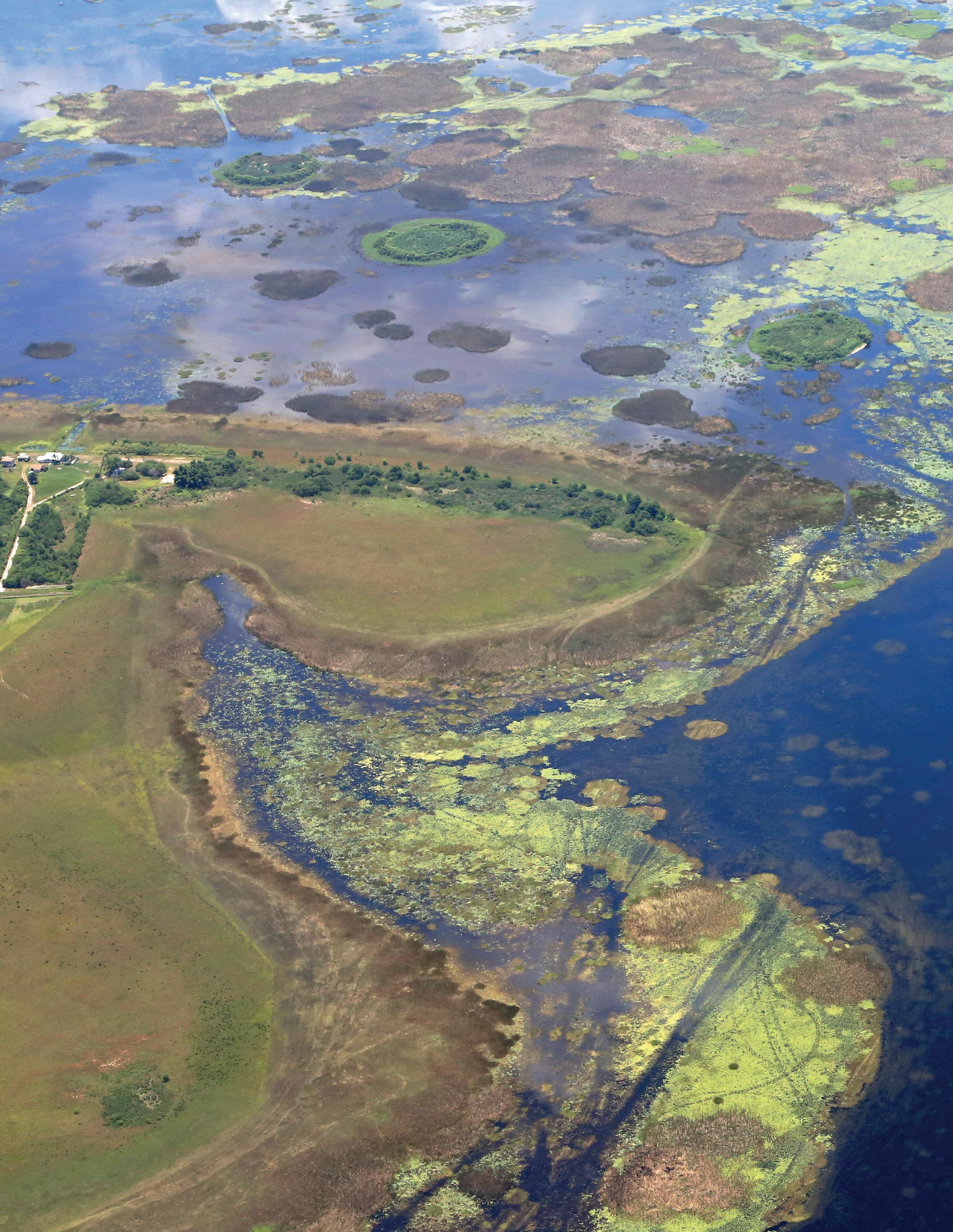

Wetlands are too dry, uplands are too wet and water quality overall is declining. Situated in the midst of critical fresh- and saltwater systems that fuel the state’s economy and well-being, researchers at The Water School at FGCU are uniquely positioned to take on these pressing challenges. We’re taking an interdisciplinary look at water and environmental issues, not just from the perspective of the health of our waterways, but also how that water impacts the health of the surrounding ecosystems, the state’s economy and the people who rely on it for life and leisure. By taking a leading role in this vital area, we are a catalyst for change in our community, our state and throughout the world.


We’ve reached a level of maturity in terms of our curricular programs, our research capacity, our people. It’s really about making our communities better, making our communities healthier, making our communities stronger, making our communities more prosperous.”
Greg Tolley, Ph.D. Marine and Earth Sciences professor and The Water School executive directorNo matter where you are in Florida, you’re never far from a body of water. And, west or east, you’re a mere 75 miles from the Gulf of Mexico or the Atlantic Ocean.
Tourism, growth, development, agriculture and recreation all depend on healthy Florida ecosystems and aquatic environments. That’s why Southwest Florida needs experts who can focus on the key impact areas, study the problems from multiple perspectives, identify emerging issues, help find sustainable solutions and train next-generation experts to take the reins.
The comprehensive nature of The Water School allows FGCU to focus on key areas critical to our water-driven world: climate change and coastal resilience, ecosystem health, health and well-being, restoration and remediation.
With 400 acres of protected habitat and LEED-certified buildings, FGCU is an environmental lab with sustainability at the core of its mission. Our awardwinning initiatives in education, energy production, research and sustainable practices make us one of the nation’s greenest campuses — the perfect place to develop The Water School. (fgcu.edu/thewaterschool)


Southwest Florida’s environment is complex and delicate. Knocking just one element off balance can lead to unexpected consequences that take decades to repair.
Today, we’ve become more adept at predicting these problems, but are still often left searching for comprehensive solutions.
u Is a comprehensive center for learning and research using a holistic approach that not only focuses on the environmental sciences but also draws in the social and health sciences, business and engineering.
u Provides state-of-the-art research and learning facilities where students receive the professional preparation they need to tackle real-world problems.
u Brings together water- and environmentfocused faculty from the marine and ecological sciences, biology, geology, engineering, health and business fields to collaborate on Southwest Florida problems.
u Integrates our off-campus facilities that provide access to the Gulf of Mexico, estuaries, rivers and the Everglades.
u Draws in our local, national and international partners and opens the doors to new partnerships.
u Conducts outreach and education programs in our local communities so that we help create a more water-literate society.
u Allows FGCU to claim its rightful place as a leading, independent source of environmental and scientific knowledge.
u Takes the lessons we learn here and applies them throughout the state, nation and world.
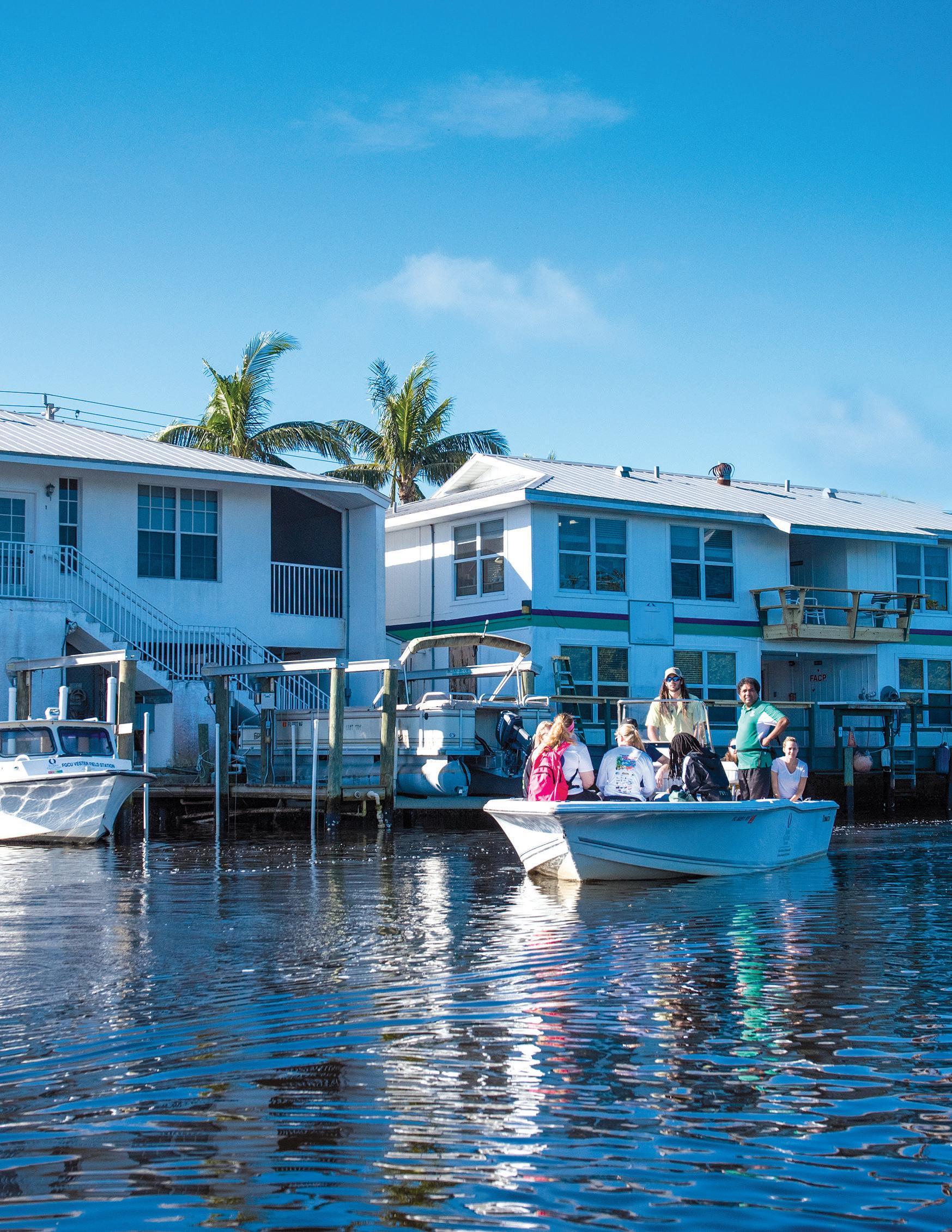

The economic impact of water in Southwest Florida is huge, from recreational use to just sustaining life here. Climate change, natural resources, human health, ecosystems and restoration and remediation — every choice we make in every one of these areas has cost.”
Shelton Weeks, Ph.D. Economics & Finance department chair and Lucas Professor of Real EstateThe university has several research programs dedicated to water issues. The Water School ties these all together.
In 2007, Norm and Nancy Vester donated more than $1 million to FGCU, enabling the university to buy the Bonita Beach Plantation Resort. Today, the facility serves as an easyaccess point to Estero Bay and the Gulf of Mexico and is an important base of operations for studies of Southwest Florida’s coastal and watershed habitats and the environmental issues that make them vulnerable, including red tide. It’s used by FGCU faculty and students, as well as researchers from throughout Florida and the U.S. It has also hosted researchers and students from 15 nations.
Working with the Naples Botanical Garden, we developed the Kapnick Education and Research Center, a joint-use facility for teaching, research and outreach located at the garden. The facility is home to FGCU’s Everglades Wetland Research Park, whose faculty, staff and students focus on restoration science through ecological engineering.
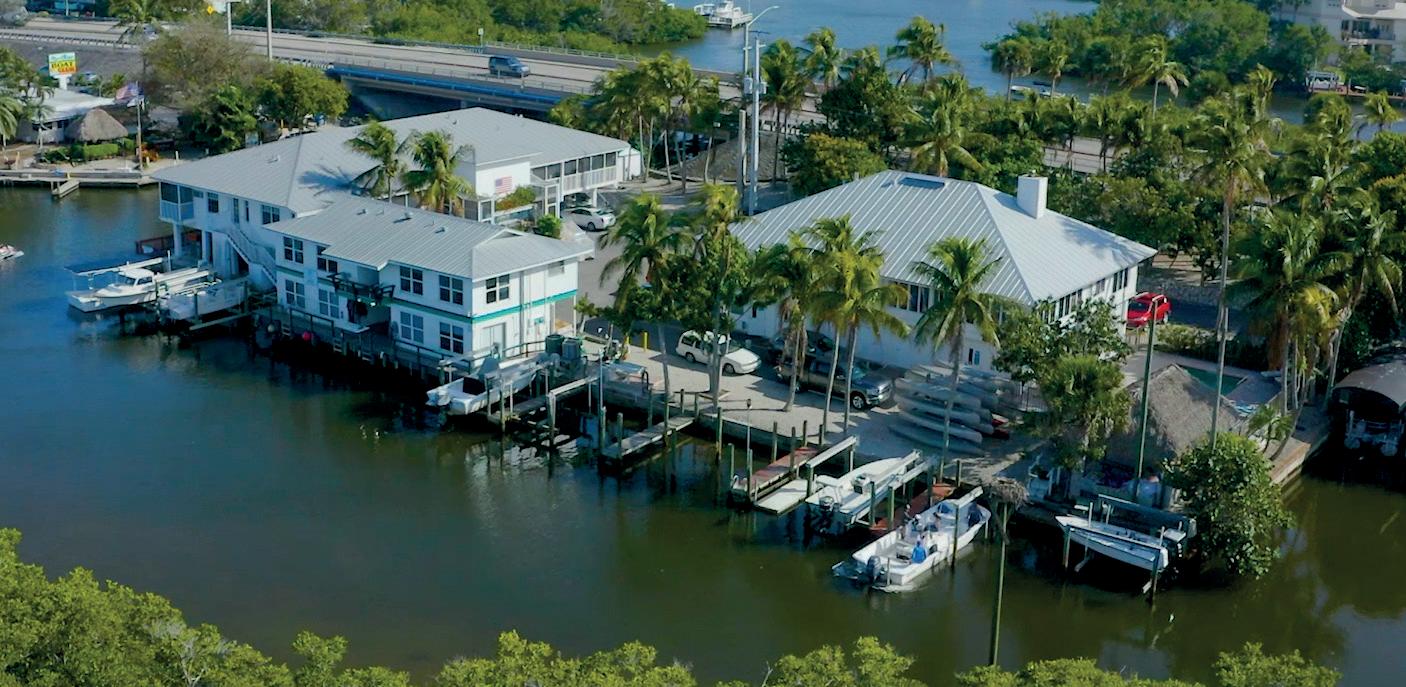
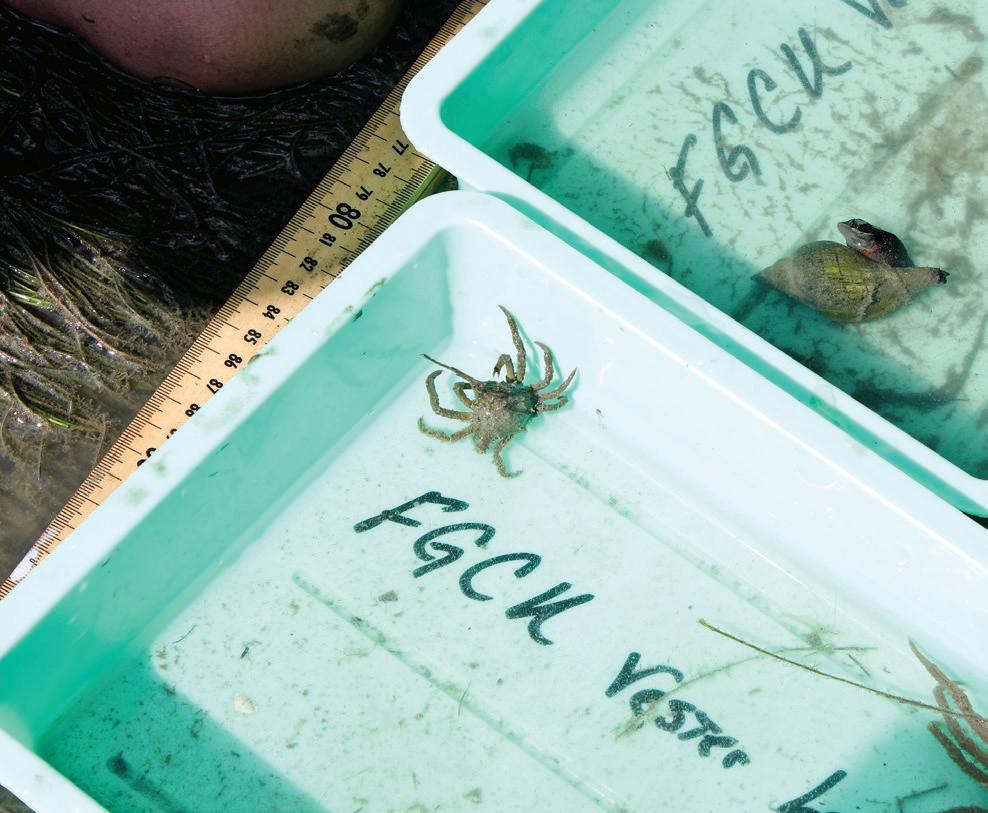



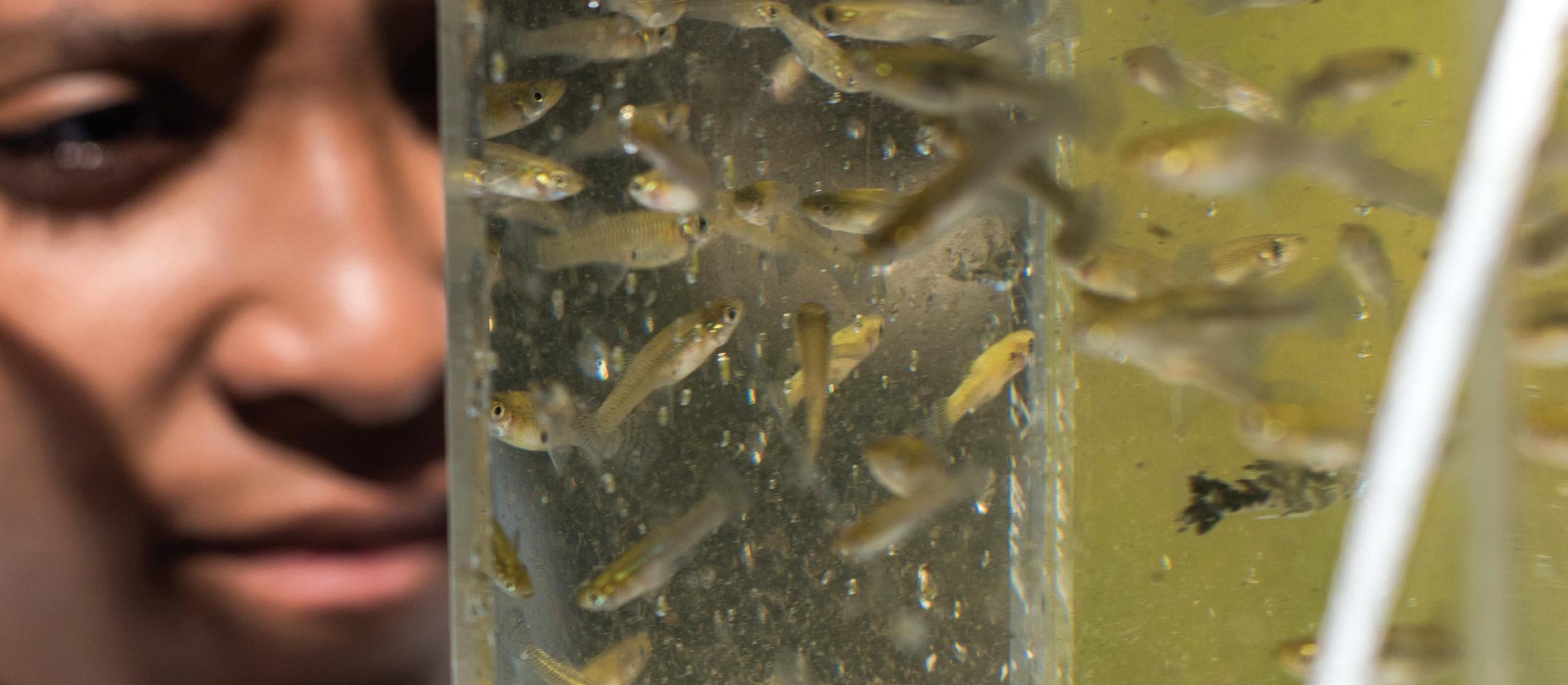
Protecting the future of our water resources is a shared and interconnected responsibility.
Service-learning and civic engagement are key elements of the FGCU experience for our students, and The Water School continues this important university tradition. The school also builds on nearly 30 years of academic excellence in water- and environment-related research and initiatives, and in business, health, engineering and outreach expertise.
Another facet of The Water School is an emphasis on partnerships and collaboration across disciplines at FGCU and with other institutions and organizations in Florida and beyond.
We are fortunate to count on key partners and know that these relationships will continue to grow.
u Conservancy of Southwest Florida
u Naples Botanical Garden
u Rookery Bay National Estuarine Research Reserve
u Sanibel-Captiva Conservation Foundation Marine Lab
u Estero Bay Aquatic Preserve
u Mote Marine Laboratory
u South Florida Water Management District
u Florida Department of Environmental Protection
u Florida Fish and Wildlife Conservation Commission
u U.S. Geological Survey
The world’s climate is changing, and impacts on Florida will be acute.
Sea level rise poses an existential threat to lowlying Florida, where it impacts private property and infrastructure and important wildlife habitat such as beaches, mangrove forests and marshes.
Changing weather patterns could reduce water quality and availability in lakes, rivers and estuaries, thus affecting aquatic wildlife populations.
Ocean acidification, caused by increased carbon dioxide in the atmosphere, will not only kill coral reefs but can also prevent oysters, clams, conchs and whelks from building their shells.
Such changes, of course, would have a major negative impact on human health as well as the area’s economy, including tourism and real estate.
Faculty at The Water School conduct climate change research looking at the effects of
changes in temperature and salinity on the physiology of animals as well as monitoring the effects of Hurricane Ian on the mangrove forests that protect communities from wind and storm surge. The goal is to help Southwest Florida communities become more resilient in the face of climate change.
The Water School partners with the University of Florida, University of Miami and the U.S. Geological Survey to develop predictive models that map coastal vulnerabilities and show decision makers what local coastlines will look like at various times in the future as sea level continues to rise.
Obviously, climate change is the big environmental story of the 21st century, and The Water School is in the right place at the right time to meet it head-on.
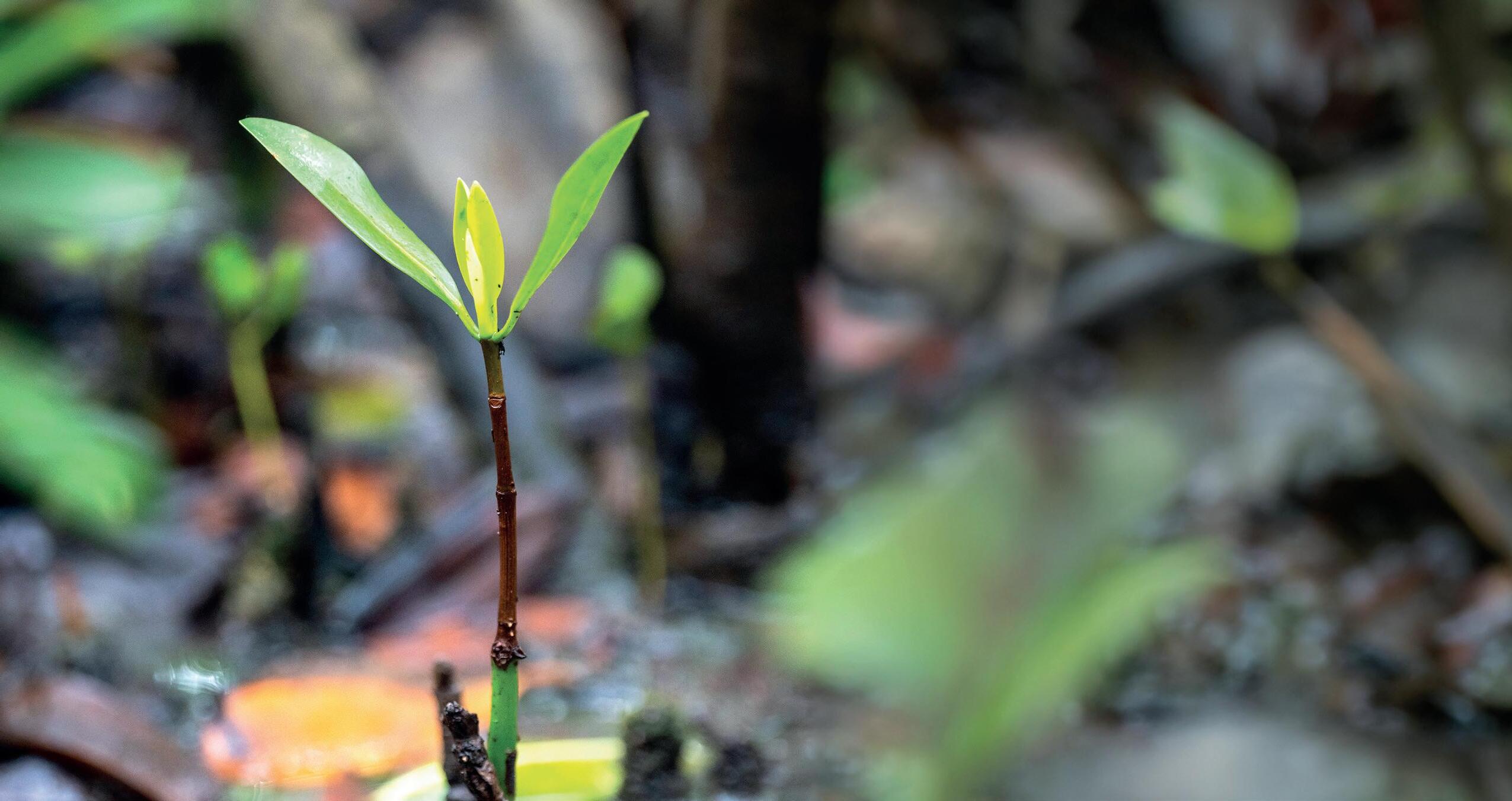



There’s a window of opportunity now where we need to be making the kinds of investments that will allow us to adapt to the changes we will be facing in the future if we’re going to continue to have the quality of life and the kindof life we have right now.”
Greg Tolley, Ph.D.Marine and Earth Sciences professor and The Water School executive director
Healthy ecosystems attract residents and visitors to Southwest Florida and are essential in maintaining a high quality of life in the region.
Healthy ecosystems are productive, resilient to stress and well organized to maintain their function. Researchers call this ecosystem integrity.
In a system with high integrity, the right amount of relatively nutrient-free fresh water flows from the watershed. This results in clear water and healthy seagrass beds that provide food and habitat for juvenile fishes that grow up to be part of the area’s recreational and commercial fisheries.
Without ecosystem integrity, too much fresh water and too many nutrients kill seagrasses in the lower part of our rivers and estuaries and can cause toxic algae blooms, killing fishes and creating health hazards for humans.
Research at The Water School is directed not only toward natural resources but also toward various factors that upset the natural balance — climate change, freshwater management and habitat loss.
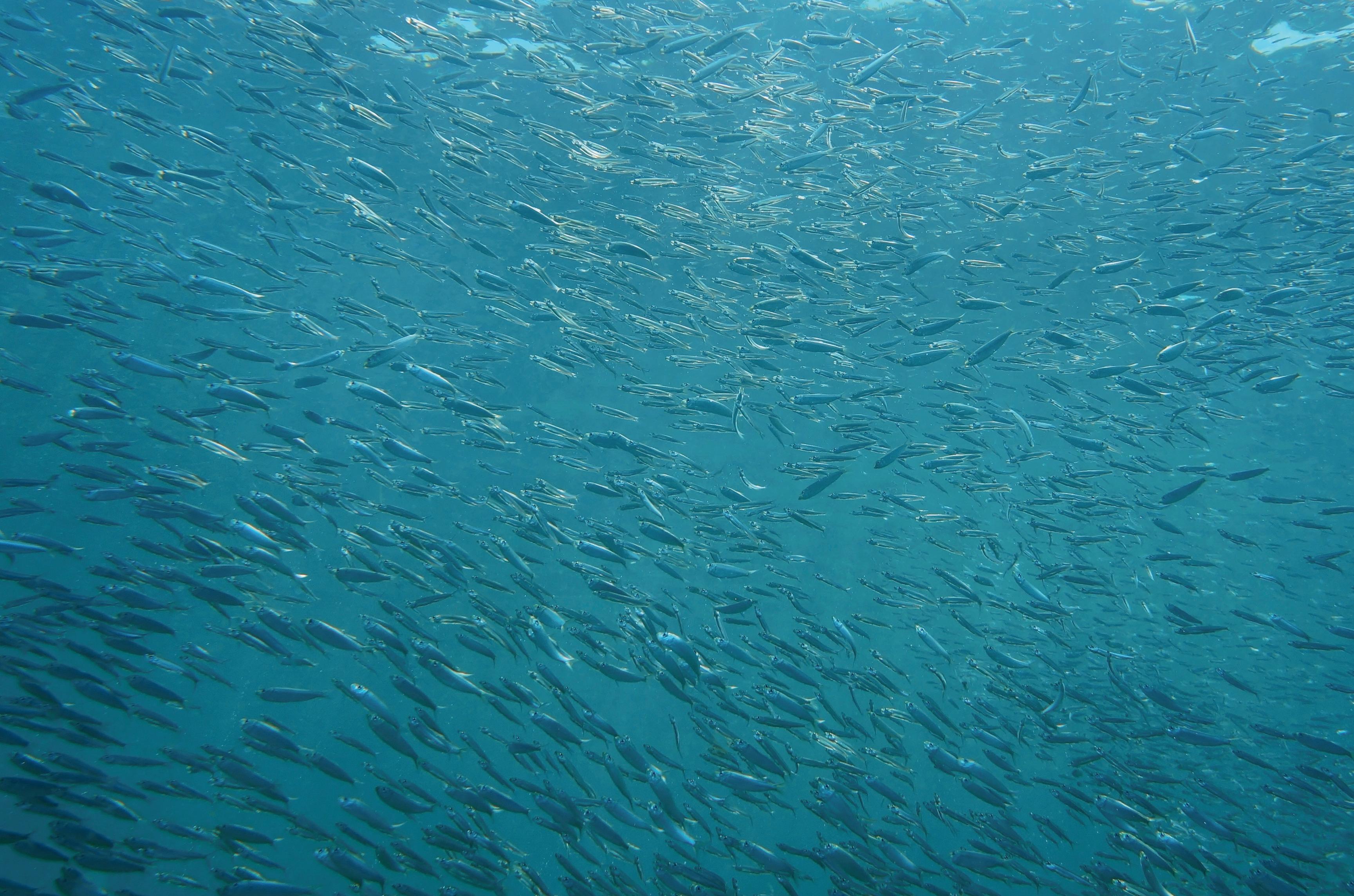
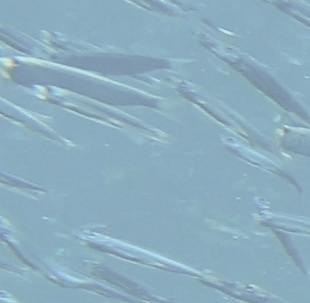

There’s passion about water in this area. People move here for the fishing, beaches, birding, boating, all those kinds of things. There’s also passion when we get it wrong. Citizens are complaining about dead fish on the beaches, cyanobacteria blooms in the Caloosahatchee River, flooding. We’re passionate, too.”
Greg Tolley, Ph.D.Marine and Earth Sciences professor and The Water School executive director
Southwest Florida, known for its natural areas that attract diverse wildlife, supports recreationally and economically important fisheries, draws visitors and future residents to the region and supports healthy aging.
But water can also create challenges to this high quality of life, not only in the form of sea level rise, droughts and hurricanes, but also in the harmful algal blooms that can kill marine life and make people sick. Understanding how our waters — and water problems — affect human health and well-being is a key focus of The Water School at FGCU.
“We started doing red tide research years ago,” says Greg Tolley, Ph.D., marine science professor and executive director of The Water School. “The human health aspect of this problem has been widely reported. The study of ciguatera seafood poisoning is an emerging field, and Mike Parsons [marine science professor and director of the Vester Field Station] is doing a great job looking at this. It’s an organism that’s related to red tide. It creates toxins, much like the red tide organism.” Those toxins accumulate in a number of popular fish people eat.
Parsons has been overseeing a $5.9-million grant from the National Institutes of Health and National Science Foundation to develop a model that can predict where ciguatera toxins might occur in commercial fisheries to better protect people from ciguatera poisoning’s nasty impacts — vomiting, diarrhea, muscle pain, numbness, vertigo and, in severe cases, death.
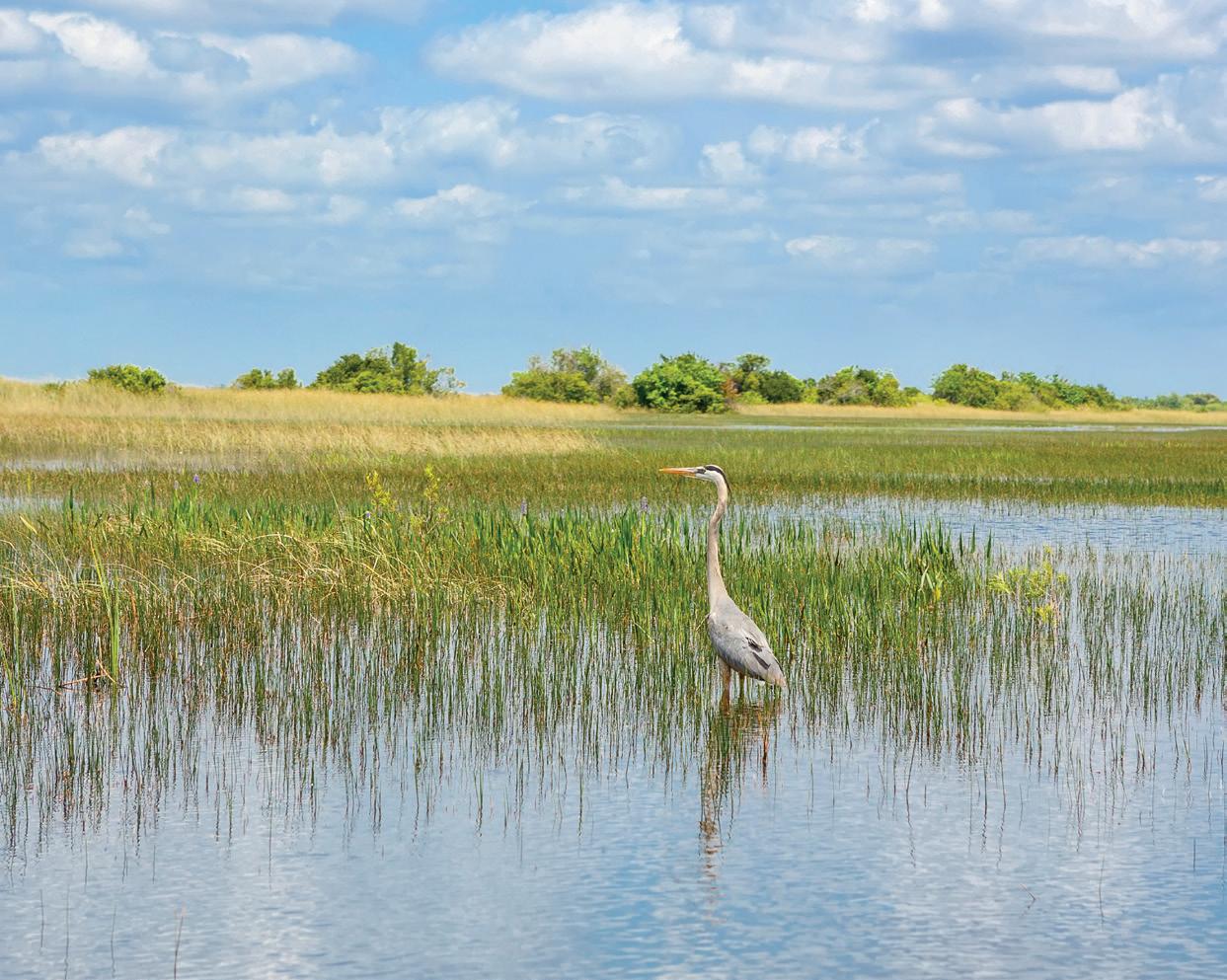
“The idea is to put together predictive models that will keep people from getting sick,” says Parsons. “So, if you know that the environmental conditions are appropriate for triggering a ciguatoxin bloom, you can steer fishers away or tell local fishmongers not to buy fish from that area.”
Mercury poisoning is such an important health issue that the Florida Department of Health publishes guidelines for fish consumption. “In Southwest Florida, mercury is huge,” Tolley says. Darren Rumbold, FGCU marine science professor, has done considerable work on mercury in fishes, including sharks. But he has also looked at mercury in pythons in the Florida Everglades.
Southwest Florida´s natural waters and wetlands support recreational activities and provide protection from sea level rise, hurricanes and water quality issues.
Wetland loss and the need for greater restoration have long been a focus in Florida, including ongoing efforts to fix the Everglades, the biggest wetlands restoration project in history. The Water School’s Everglades Wetland Research Park at the Kapnick Center on the campus of the Naples Botanical Garden is studying wetland restoration using a multi-disciplinary approach called ecological engineering. When ecological engineering originated in the early 1960s, the idea of engineers working with ecologists was considered a little off the wall.
North of the Everglades, poor water quality has impacted aquatic systems and reduced the coverage of aquatic vegetation in rivers and lakes. One example is the loss of seagrasses in the Caloosahatchee River and estuary, Win Everham, FGCU environmental studies professor, has experimented with ways of restoring grasses in the river and in Lake Trafford to the south. “If
we can get grasses established and living long enough to fruit, that will invigorate the seed bank. If we get healthy vegetation in the river, releases from Lake Okeechobee won’t matter.”
The Water School is also involved in restoring oyster habitat and monitoring its recovery and health. Professors Melissa May, James Douglass and Serge Thomas and their students are exploring the use of restored oyster reefs to enhance ecosystem function — filtering water to improve its clarity and quality — as a means of improving overall habitat quality in local bays and estuaries. Because a single oyster can filter up to 50 gallons of water a day, and an average of 700 oysters can easily colonize a 1-meter area (39 inches by 39 inches) of oyster reef, a 1-meter area of oyster reef in Southwest Florida can filter up to 35,000 gallons of water per day — equivalent to the volume of water contained in a backyard swimming pool measuring 20 feet by 45 feet.

The success of The Water School at FGCU hinges on our ability to secure private funding from individuals, corporations, foundations and the State of Florida to expand the university’s infrastructure, establish scholarships and fellowships and realign new and current graduate and undergraduate programs in the school.
The new home of The Water School is a 114,000 square foot state-of-the art research and teaching facility that serves as a comprehensive center of STEM education and provides much-needed laboratory courses to train students to help solve Florida’s water problem. However, to maximize the use of this new facility The Water School needs funding to support its research programs and the researchers using the space.
NEED: $10M
Scholarships and fellowships
Strengthening and understanding Southwest Florida’s environment will involve many students working alongside FGCU researchers. The Water School seeks to attract and retain the best and brightest students, fellows and faculty.
Contributions will be used to create student research scholarships, assistantships, faculty stipends and to host symposiums that address important issues of our time.
NEED: $5M
The presence of additional researchers on campus — new faculty, graduate students and post-doctoral fellows — increases and enhances opportunities for undergraduate research. Once implemented, these new programs will help FGCU gain wider national recognition for its contributions to research on the connections among freshwater, watersheds and coastal ecosystems.
NEED: $5M
Current degree programs for The Water School — each program falls within an area of strategic emphasis designated by the Board of Governors of the State University System of Florida:
u B.A. Environmental Studies
u B.S. Marine Science
u B.S. Environmental Geology
u M.A. Environmental Studies
u M.S. Environmental Science
u Ph.D. Coastal Watershed Science & Policy (Coming 2024-2025)
